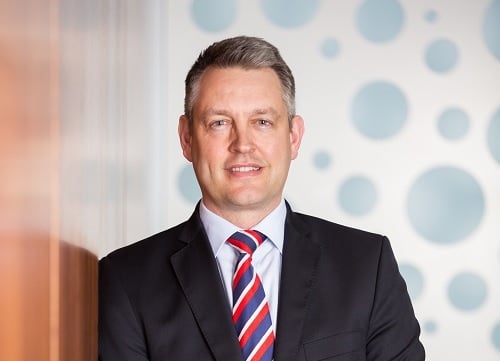

AMP announced yesterday that this year would be the last year it would host an offshore incentive programme for financial advisers. Insurance Business spoke to managing director Blair Vernon about the decision and what it means for the company’s distribution network.
The move comes in the wake of the Financial Markets Authority’s (FMA) report into life replacement business or “churn” where data revealed that soft dollar incentives, such as offshore trips insurers including Partners Life, Asteron Life, Fidelity Life and Sovereign offer advisers, were influencing poor customer outcomes.
Vernon said he didn’t want yesterday’s announcement to be seen an anything other than AMP’s absolute commitment to the adviser community.
“We’re not doing this because we don’t think advisers are vital, in fact we think they are critical,” he said. “But we need to partner with them to make them a respected and trusted group because New Zealanders need them. We believe that in partnership with them, we can help more New Zealanders make a difference to their financial outcomes.”
He said ending their offshore incentive was the “natural next step” in a process that began in 2012 when AMP altered the criteria to qualify for the annual trip and made the programme more focused on advisers’ professional development.
“At the end of the day we felt there would be a point in time where it made sense to focus on it (professional development) exclusively,” he said. “The FMA’s report puts that into sharp focus, so naturally for us it’s the right time.
“In the fullness of time we think people will evaluate this for what it is and that we want to strive for the highest standards of transparency and openness.
“Our commitment to advisers’ professional development and growing the capability of our distributors and their businesses is unchanged. There are loads of ways we can do that outside of our offshore programme. What we have done over the last few years is invest very heavily in the best of global education to those forums, but there’s nothing stopping us bringing those people to New Zealand and exposing them to a bigger audience. I don’t think it’s feasible for people to suggest the only way to get your professional development points is to fly to an exotic location in order to be exposed to that.
“Last time I checked Air New Zealand is quite able to fly academics and other experts from offshore (destinations), or there are plenty in New Zealand that can assist with your professional development programmes.
“There is no lack of commitment from us to our distributor partners in terms of the commitment we make to professional development. We have always been on the forefront of that. Our work with our QFE advisers has almost over done their training to the extent that they have never had a problem with their CPD, so we don’t see that as being a challenge.
On whether he felt other insurers should follow in AMP’s footsteps, he said this: “The rest of the industry can make their own commercial calls about this, but I think the expectations I’ve sensed from clients and also a growing majority of advisers is the need for transparency and certainty and not opaque, soft dollar commission frameworks.
“It’s reflective on what is going on overseas, so to put your head in the sand on this is I think not the best outcome. That’s never been who we are, and that’s certainly not who this business is.
“Fundamentally, I want to be able to stand in front of clients and stakeholders and say that we are working hard to do the very best we can for the best outcomes for everyone. I don’t believe this will compromise outcomes for advisers - our professional development commitments remain in tack, and if a small number of people have a different view, we’ll just have to work our way through that.”
Vernon said the imbalance in disclosure obligations for distributors and the level of opaqueness that is available, particularly to the registered financial adviser (RFA) community, isn’t in the best interests of consumers.
“A higher level of educational standards and really clear, transparent disclosure about exactly what’s going on is a fundamental principle (that needs to be implemented). That seems to be the theme coming through, so that’s promising,” he said.
“The challenge is this can’t just come from regulators. I’d love to think the industry deeply believes in the very best outcomes for clients and the stakeholders it serves, and if that requires some change for the participants in the industry then we have to be up for that, otherwise we won’t be relevant and that’s not a great thing.”
